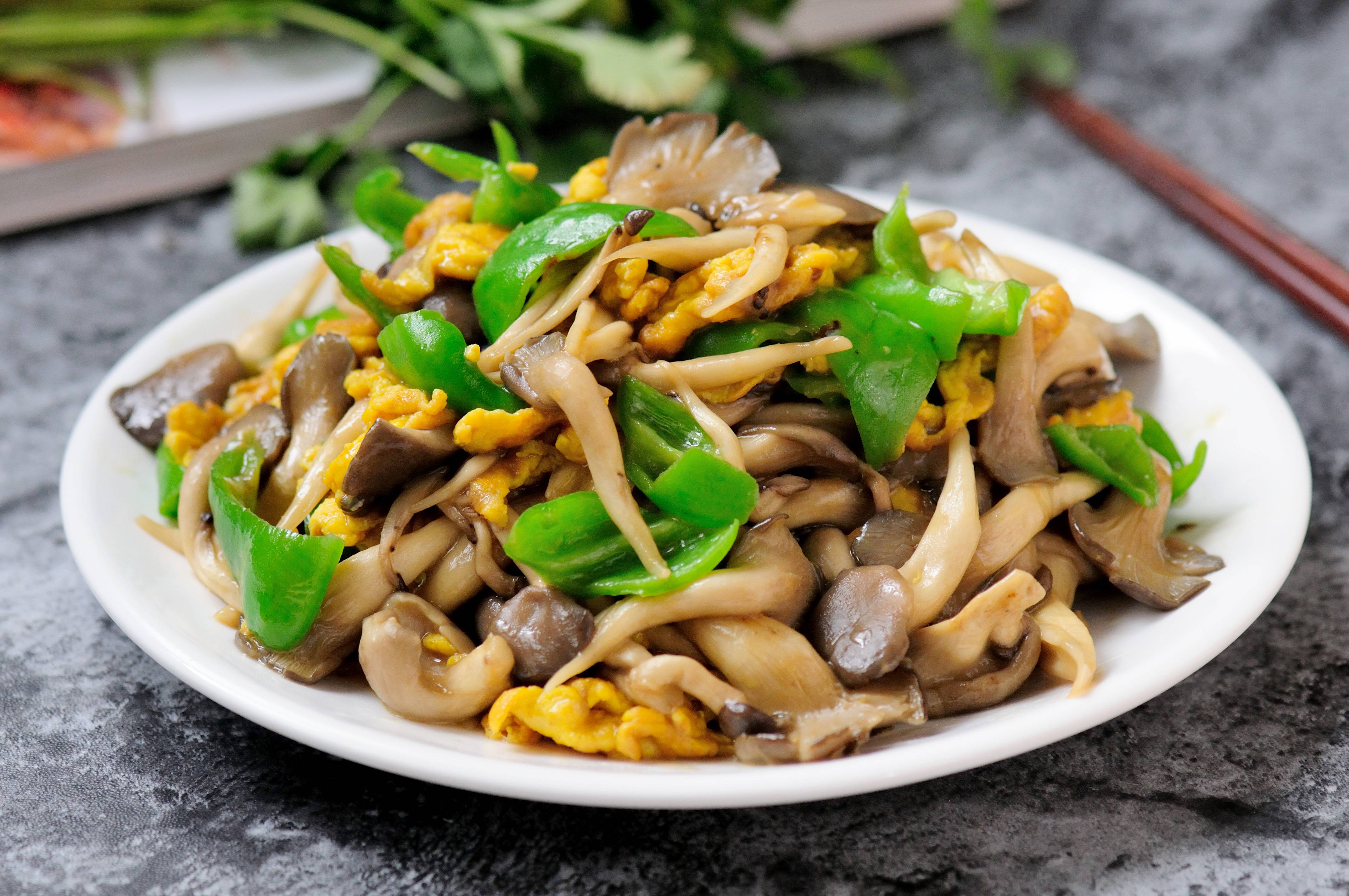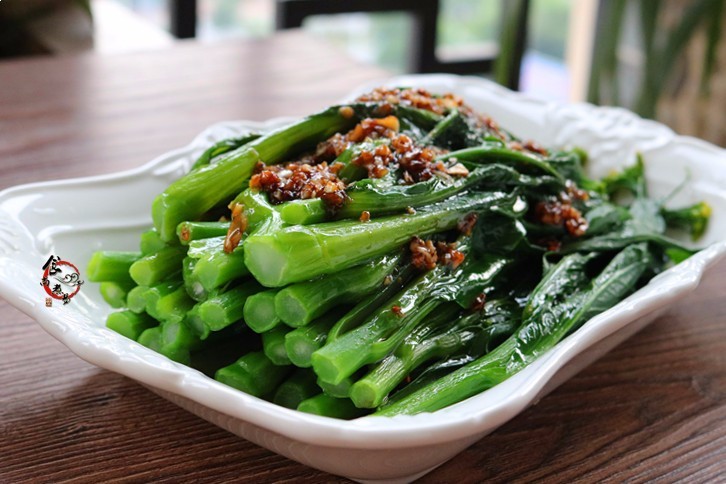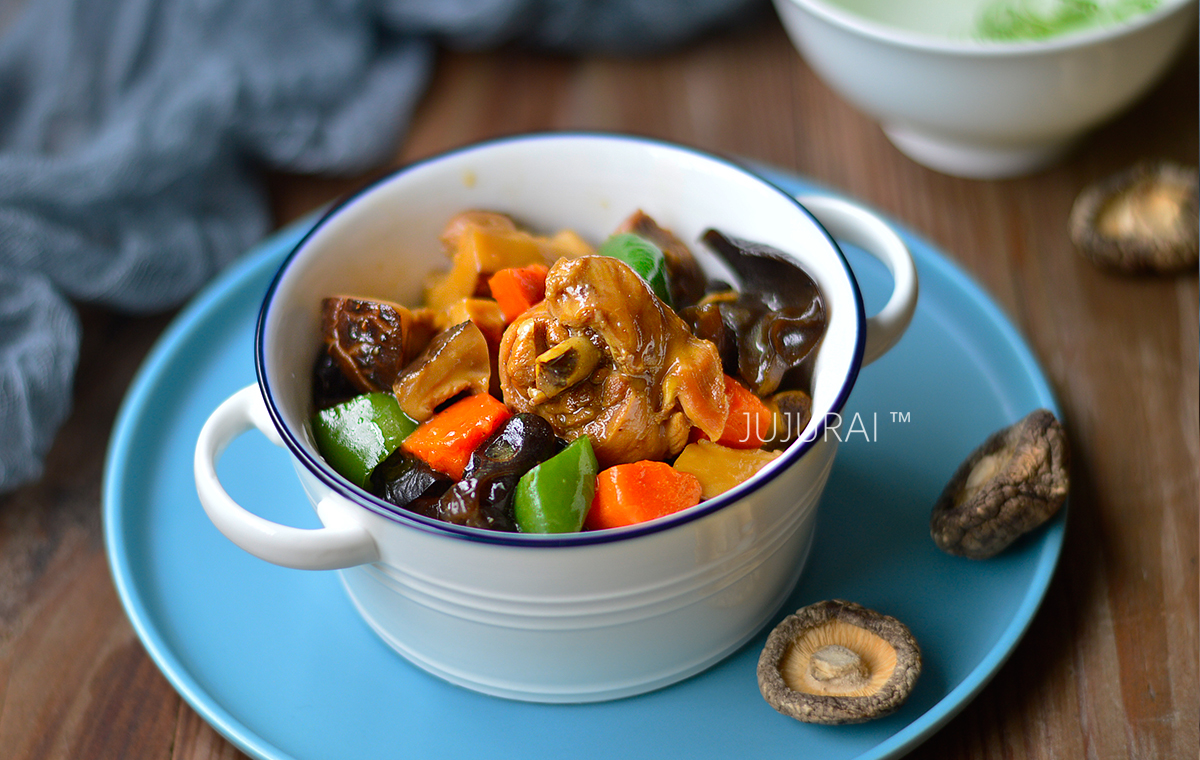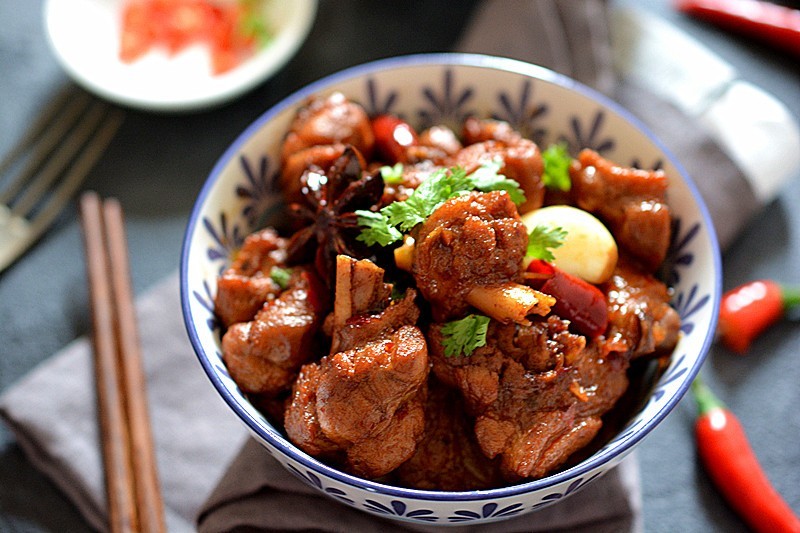Steamed bun
| Wheat flour 500 grams | Clear water 260g |
| Baking powder 5 grams | Edible baking soda (optional) 1g |

Step 1
In fact, household bread machines are now very popular and very powerful. In addition to making bread, they can also be used for many purposes, such as making jam;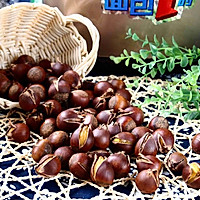
Step 2
Fried chestnuts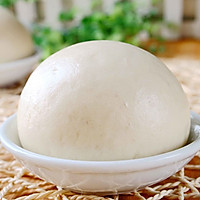
Step 3
Of course, its most important function is kneading dough! Therefore, using a bread machine to knead dough and steam steamed buns is the most natural thing to do. As long as it is done properly, the taste will not be inferior to handmade steamed buns - it is just as delicious and beautiful. Let’s try it with Aunt Lan.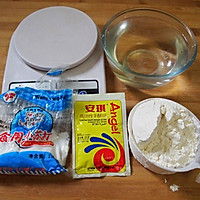
Step 4
Large collection of raw materials: wheat flour; water; yeast powder; edible baking soda;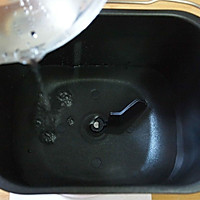
Step 5
Take out the inner barrel of the bread machine and measure 260 grams of water. Because the bread machine only relies on this blade to knead the dough, the kneading area is limited and water cannot easily enter the flour particles. This is the fundamental reason why the taste of machine-made steamed buns is inferior to that of hand-made steamed buns! Therefore, the amount of water required for kneading dough with a bread machine is slightly more than that for kneading dough by hand (250 grams), otherwise the dough will be too dry and hard.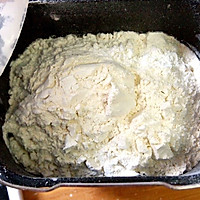
Step 6
Add 500 grams of flour;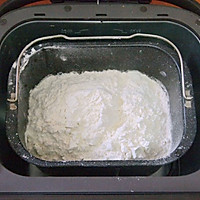
Step 7
Place the inner barrel into the bread machine and lock it tightly;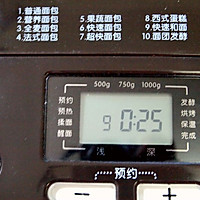
Step 8
Close the cover, plug in the power, set the quick dough kneading program, and start the machine;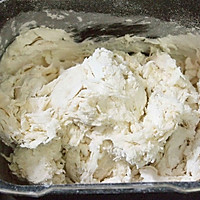
Step 9
The machine is kneading dough quickly;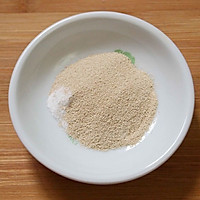
Step 10
Use the space between the kneading machine to weigh out 5 grams of baking powder and 1 gram of baking soda for later use;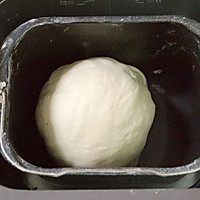
Step 11
After 25 minutes, the quick dough kneading process is completed.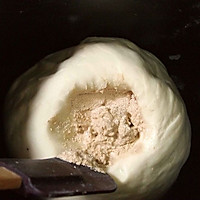
Step 12
Make a hole in the upper part of the dough with your hands, pour in the prepared baking powder and baking soda, add a little water to slightly dissolve the yeast and mix well;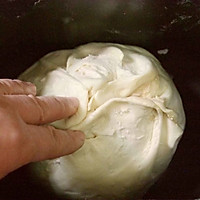
Step 13
Pinch the dough together and seal it slightly to prevent the baking powder from scattering and adhering to the inner wall of the barrel and preventing it from being fully mixed with the dough;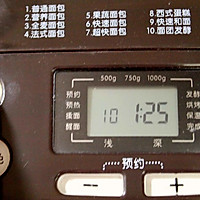
Step 14
Cover the machine cover, set it to the dough fermentation program, and start a new round of kneading and fermentation process;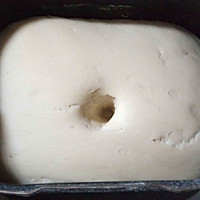
Step 15
The procedure was completed as promised, and the dough fermented successfully—the surface was still slightly dry and cracked.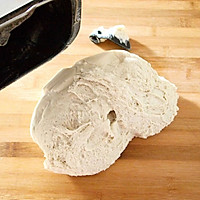
Step 16
Pour the risen dough onto the board and take out the mixing blade;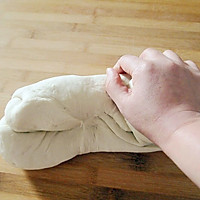
Step 17
No need to add dry flour, just knead vigorously for 10 minutes;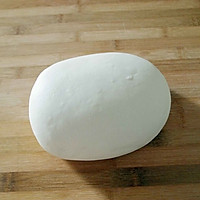
Step 18
Knead until all the air is removed from the dough and it becomes a smooth dough;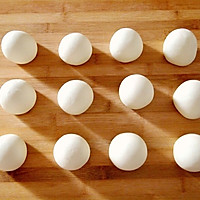
Step 19
Then divide it into equal portions of the size you like, knead them into round bun shapes, and complete the shaping;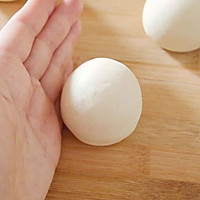
Step 20
Although it has been weathered and rough, I still can’t help but admire the clean hands, clean panels and the smooth and round buns;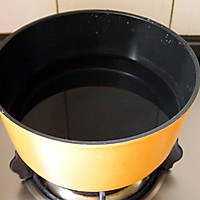
Step 21
Fill the steamer with appropriate amount of cold water;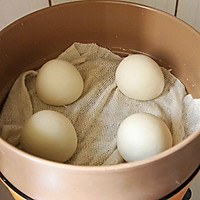
Step 22
Cover the steamer with a damp cloth and put the kneaded buns into the steamer - be sure to leave enough room for secondary fermentation - cover the pot and let it sit for 20 minutes until doubled in size;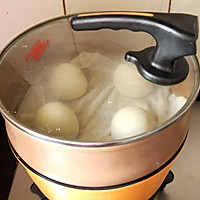
Step 23
After the secondary fermentation is completed, turn on the heat. Because it is winter, use medium heat to boil the water until the water boils. Then change to high heat and steam for 20 minutes. When the steamed buns are cooked, turn off the heat. Do not rush to lift the lid and wait for 5 minutes - if it is summer, Then bring to a boil over high heat until steamed.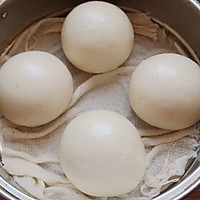
Step 24
Let it sit for 5 minutes before opening the lid and taking out the steamed buns.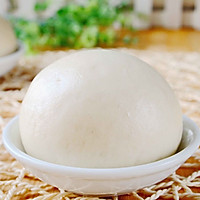
Step 25
Snowy white, smooth, chewy and sweet, thumbs up!
Step 26
Regarding the production method of "Handmade Steamed Buns", please scan the QR code to follow Aunt Lan's WeChat public account "Aunt Lan's Cooking" for more information. Steamed buns cooking tipsSpecial reminder:
1. The steamed buns kneaded by the bread machine have never been comparable to the hand-made steamed buns. One of the important reasons is that the machine kneading area is limited and cannot fully penetrate the water into the flour particles. The steamed buns are dry, hard and dark. Not smooth and tastes weak. Therefore, it is necessary to add a quick dough kneading process, and the amount of water used should be slightly more than that of pure manual kneading, so that the flour particles can absorb more water, and the steamed buns will be soft, delicate, chewy and delicious.
2. Be sure to add baking powder during the fermentation stage of the dough - because the yeast usually takes about 2 hours to work, if you add baking powder during the rapid dough mixing stage, the yeast will enter the optimal fermentation stage prematurely, which will cause the dough to ferment. Steamed buns cannot reach the ideal state of hair growth;
3. During the fermentation stage of the bread machine, an electric heating tube is responsible for controlling the temperature. When the yeast reaches the optimal fermentation state, it will have a slightly sour taste, especially after the steamer is steamed. Generally, it will weaken or even be inedible after the pot is boiled. This It tastes like normal baking powder. If you don't like it, you can add a little baking soda to effectively neutralize the sour taste. Therefore, baking soda is optional and can be added or not. However, in a daily diet that is highly nutritious and high in purine, it is still beneficial to consume some baking soda in moderation.
4. Whether it is machine-made steamed buns or hand-made steamed buns, as long as the dough is made with baking powder and yeast, there will be a stage of exhaust shaping and secondary fermentation at the end, and it must be steamed in a cold water pot; do not uncover it immediately after steaming and turn off the heat. The lid of the pot needs to rest for 5 minutes before opening, so as to prevent the steamed buns from suddenly being cold and causing the surface of the buns to shrink. These are different details from traditional old noodle making, but they are directly related to the whole pot. The success or failure of steamed buns.





